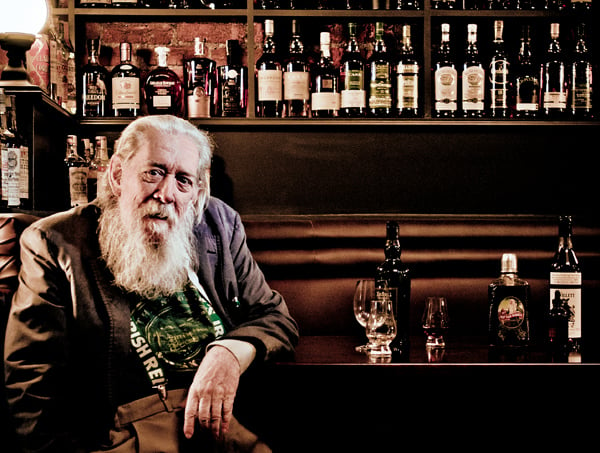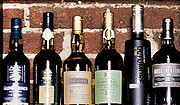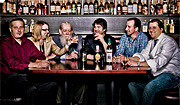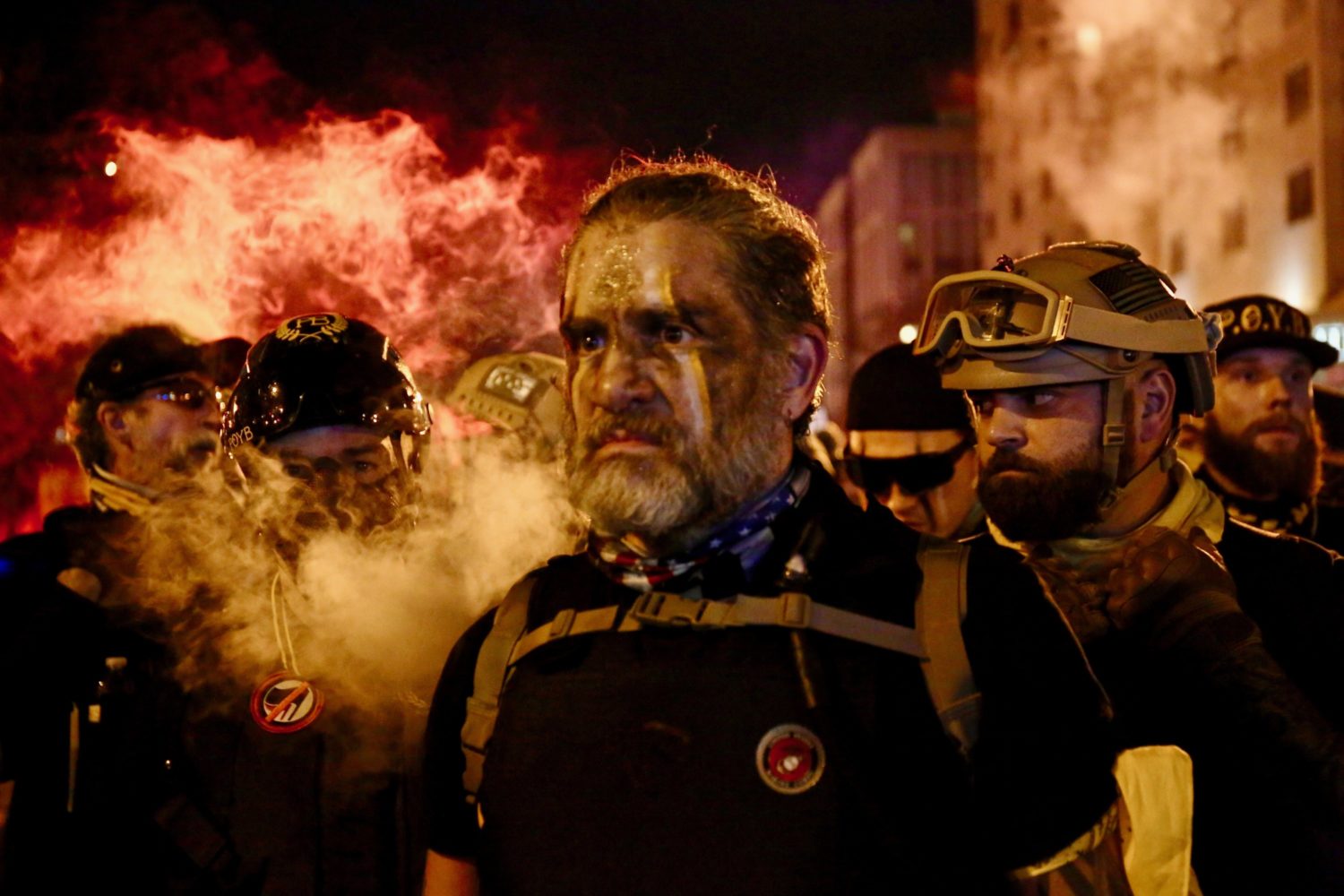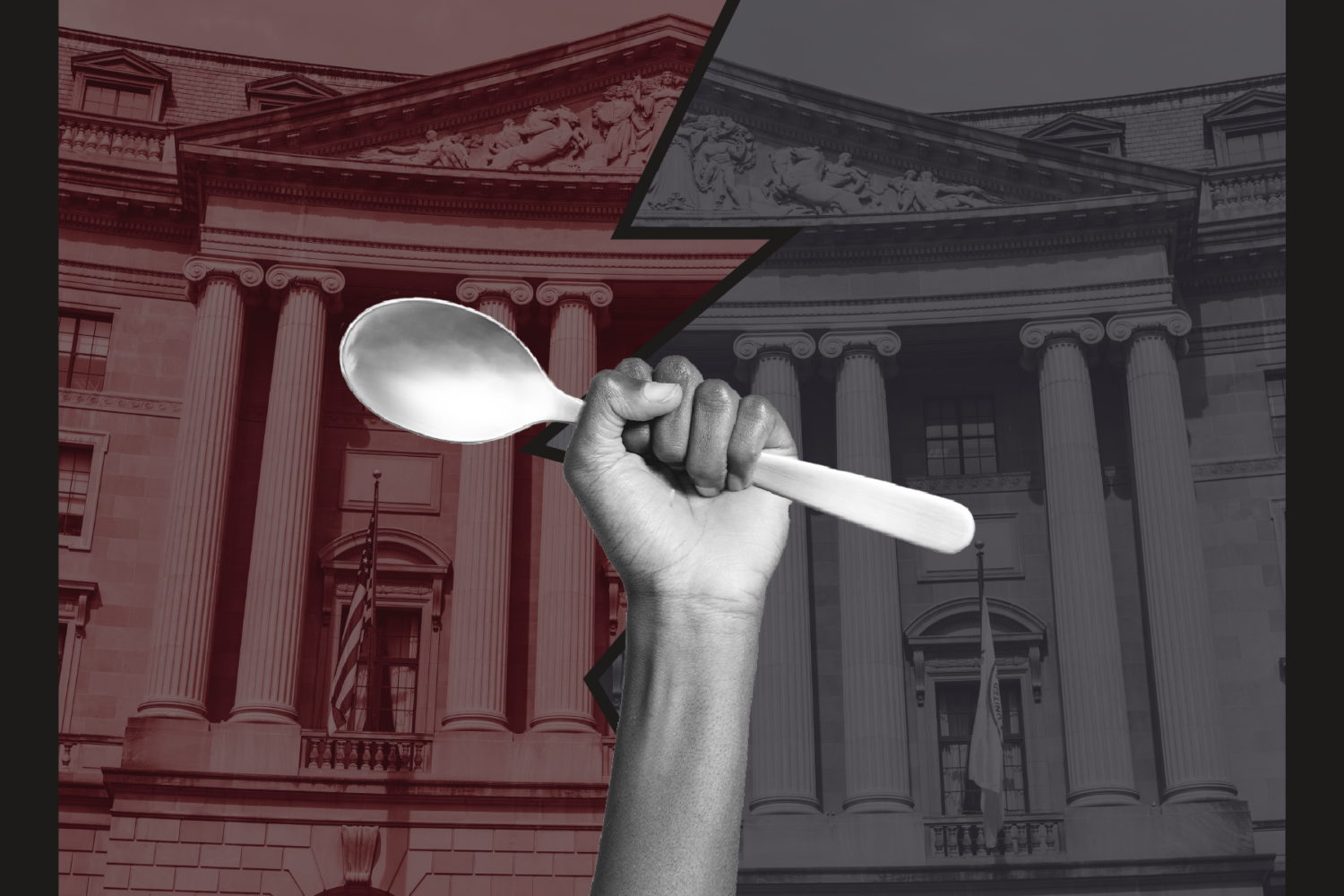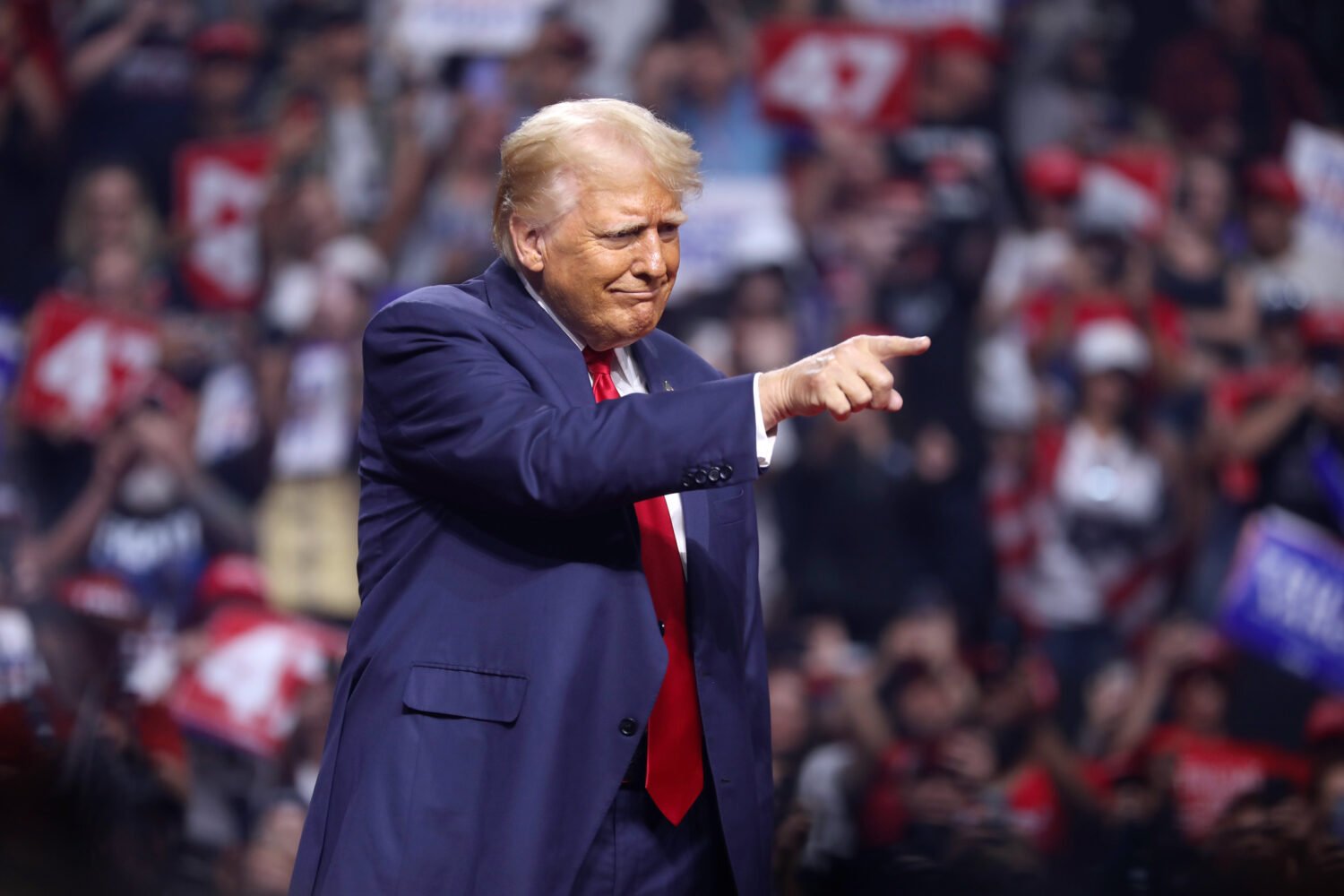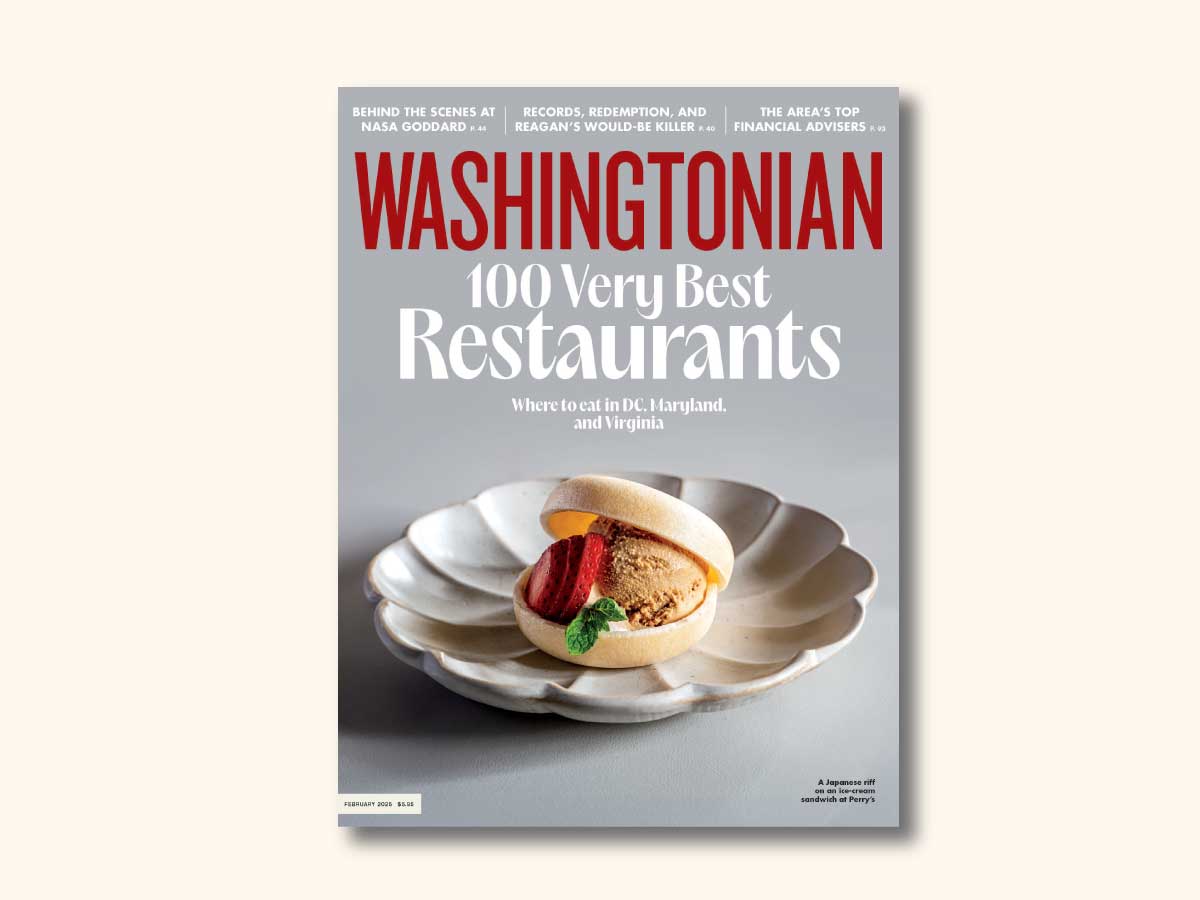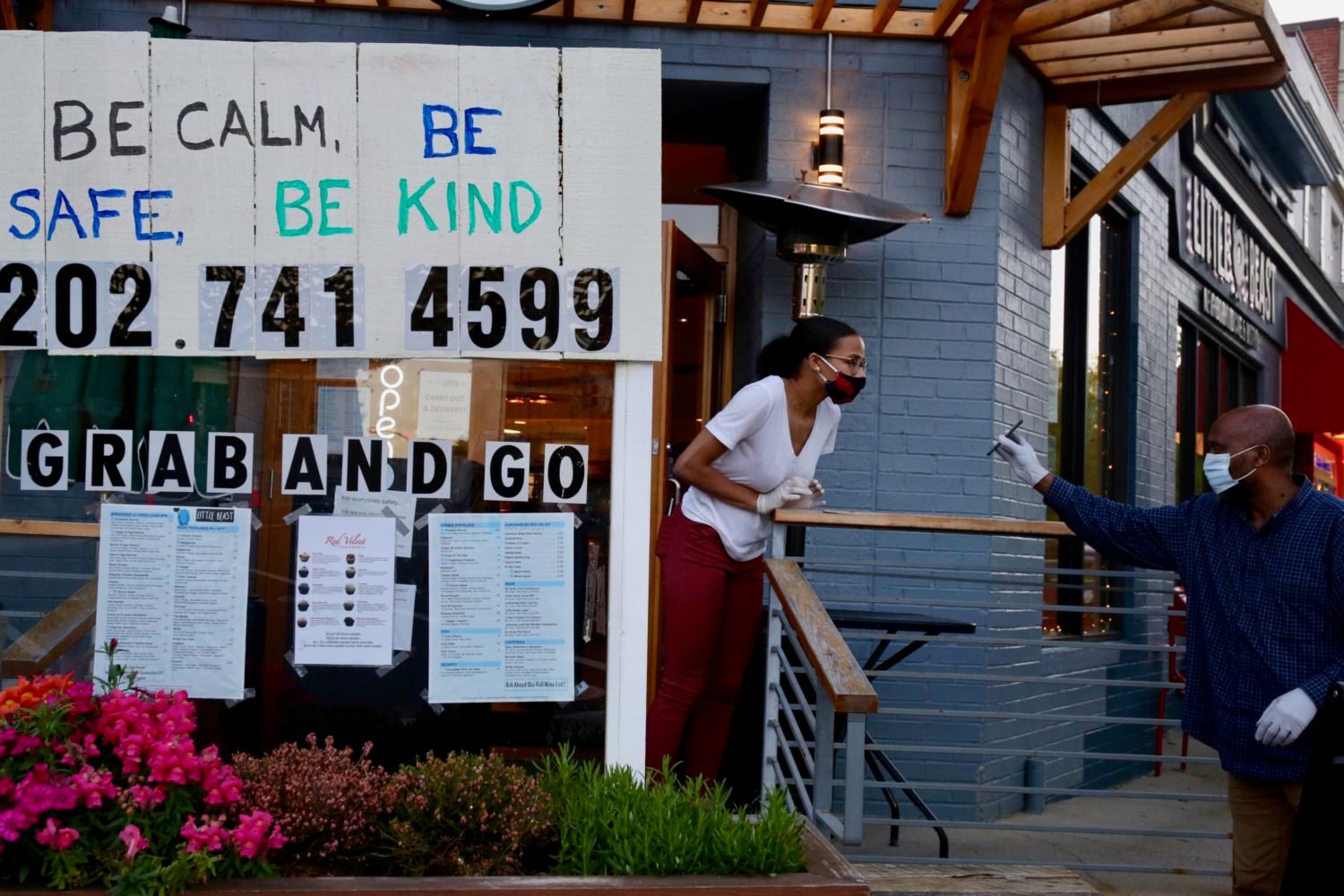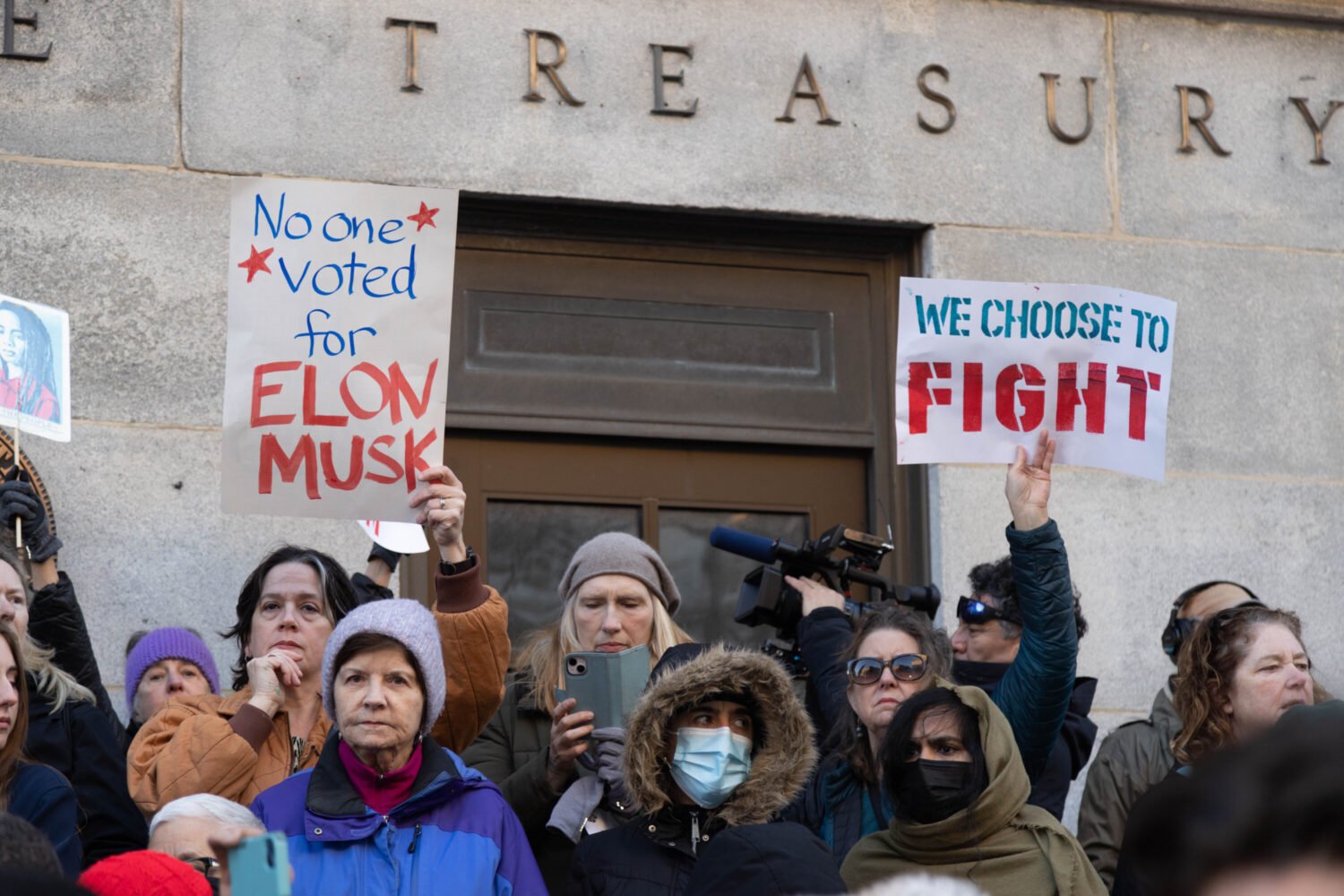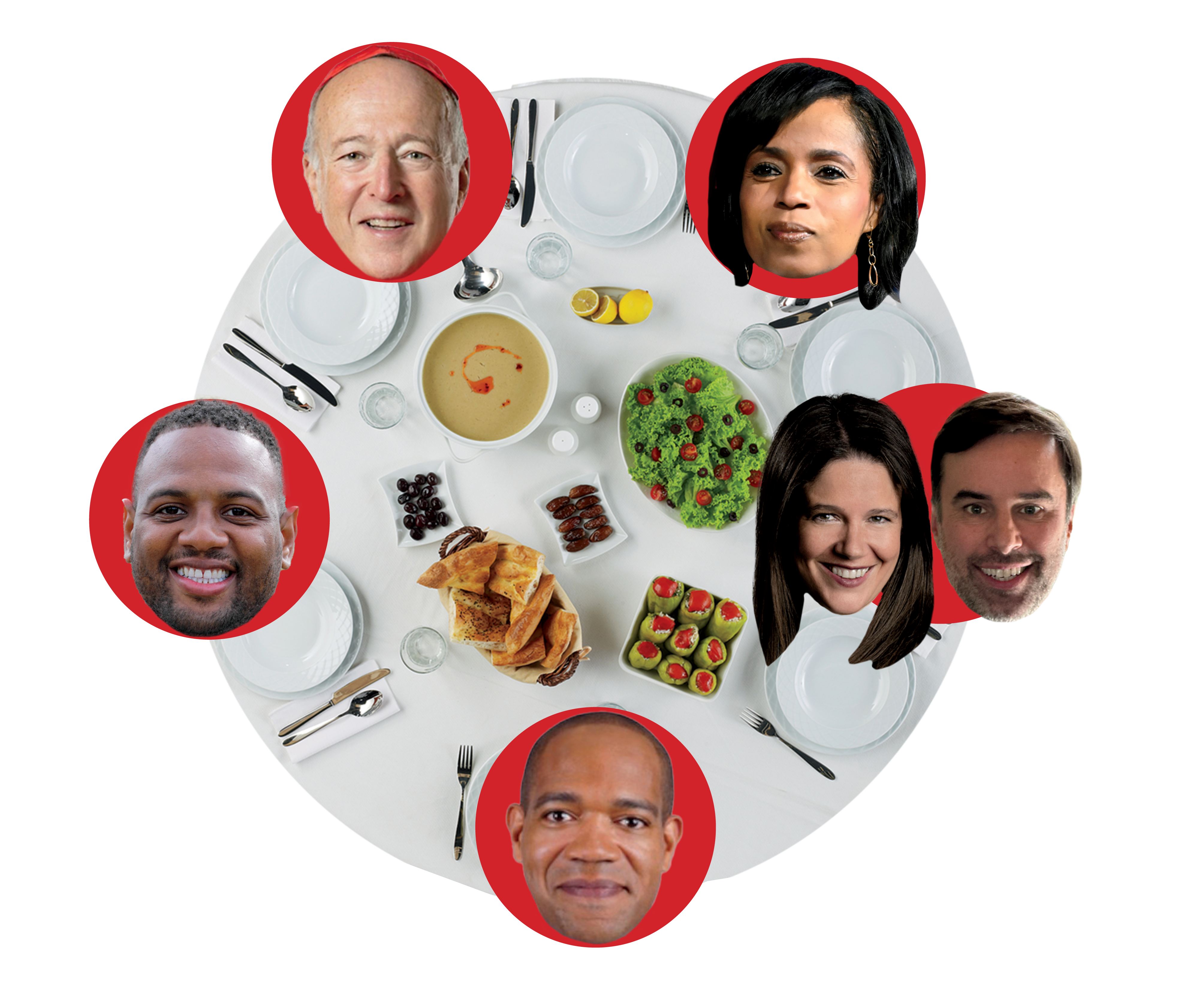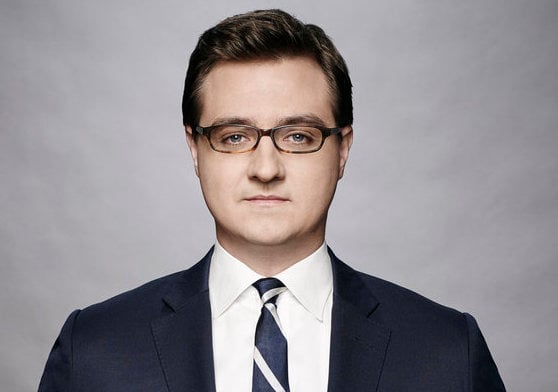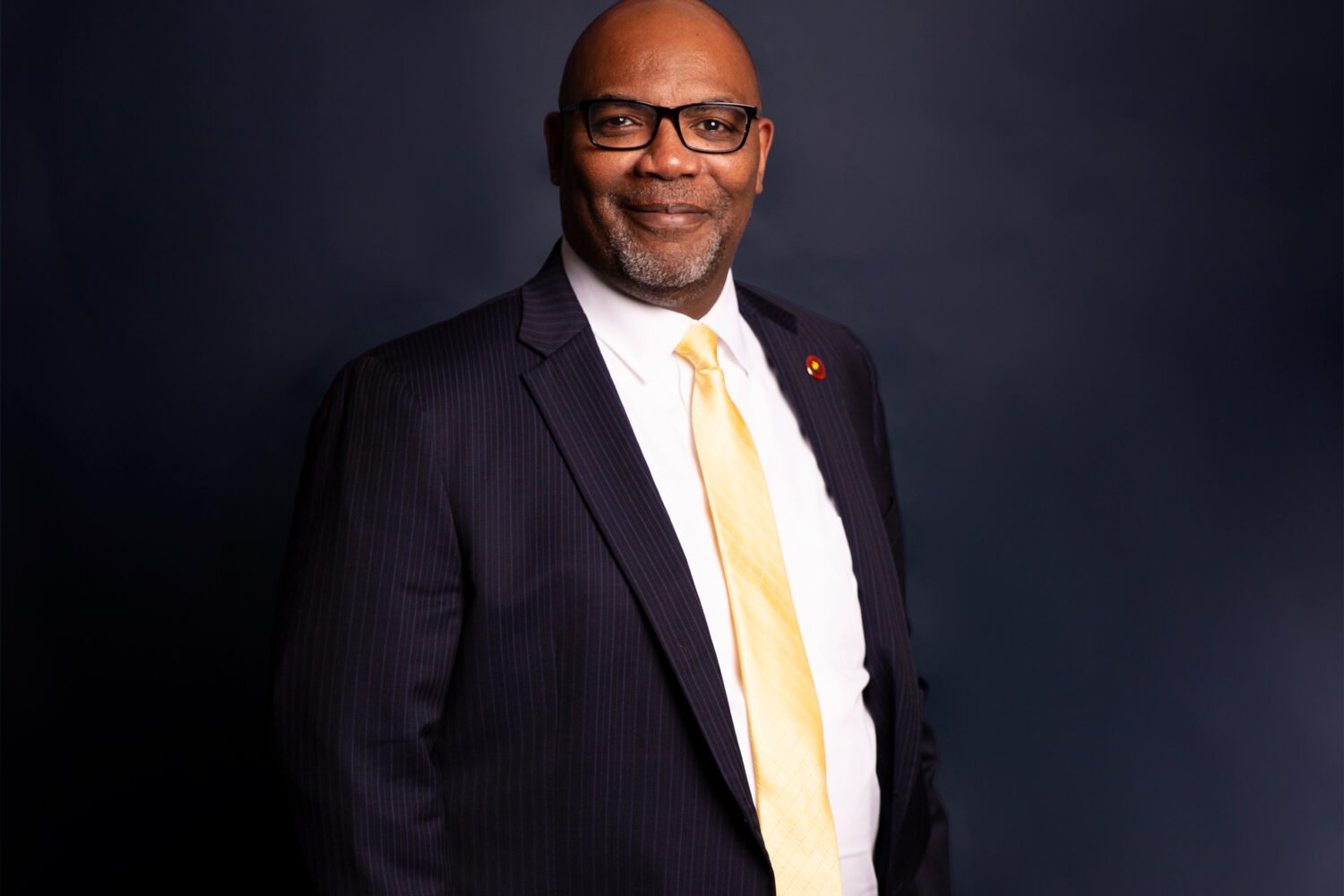Harvey Fry, a Texan transplanted to DC, has been a Capitol Hill staffer, artist, cab driver, gambler, and more. Among his obsessions are 20th-century classical music, online poker, and single-malt Scotch whisky. Part of his collection helps stock Jack Rose, a new bar/restaurant in DC's Adams Morgan that is the area's definitive repository of spirits. Photographs by Sean McCormick.
Harvey Fry was not his usual cantankerous self when I called not long ago to ask if he’d care to join me for lunch. His words came out thickly. Worried that I’d awakened him, I glanced at my cell phone: It was a little before noon. There’s almost always a story with Fry, 73, and there was indeed an explanation for his grogginess.
Some people like to read a chapter of a book before dropping off to sleep at night. Harvey Fry prefers to play online poker for an hour or two before bed. He usually gives up when he starts losing too much. On this night, however, he was on a hot streak. He kept winning, so he kept going—and going. Into the morning he played, and into the next day, then into the next evening and night. Somewhere around hour number 32, his wife told him, “You can’t keep doing this—you’re crazy. You better eat something and go to bed.”
Finally, he did—36 hours after he began.
“I’m an obsessive,” Fry admits.
Online poker is just one of Fry’s passions. Another is music. Fry’s interest is 20th-century classical music. Twentieth-century classical is often regarded as the ugly stepdaughter of the genre, derided for its atonality and angularity. But to hear Fry speak on the subject, you might think there were no other music worth the time, attention, and investment.
He owned some 11,000 CDs before selling off most of his collection—though the buyer made copies of the disks for him. He keeps a running list of the greatest living composers, ranked from 1 to 140. Ask Fry his opinion of the American minimalists John Adams and Philip Glass. They don’t even make the top 30. The current number one: Per Nørgård.
An 11,000-CD collection and nightly online poker would be more than enough to occupy most obsessives, but consider Fry’s most consuming obsession: single-malt Scotch. Fry amassed a collection of nearly 5,000 bottles. Kevin Kosar, who wrote Whiskey: A Global History and runs a blog called AlcoholReviews.com, called it “the most incredible collection of Scotch I’ve ever seen” on the title page of Fry’s copy of the book.
Four rooms of Fry’s three-story brownstone in DC’s Mount Pleasant house the collection. A friend of Fry’s estimates its worth at $650,000 to $900,000.
The idea that I might put those figures into print is distressing to Fry, who is almost as obsessive a worrier as he is a collector. What if someone reads it and decides to break into his home? What if the neighbors start to complain about deliveries? What if the tax man starts keeping watch?
Next: A look into the 1,400 spirits at Jack Rose
I first met Fry on a tour of Jack Rose, the Adams Morgan bar/restaurant due to open in late May or June. The place was still under construction. Dropcloths covered the tile floors of the dining room.
The owner, Bill Thomas—who also operates two locations of the bar Bourbon as well as Breadsoda in DC’s Glover Park—said we were standing in what would be, when it opened, the area’s definitive repository for spirits. Most restaurants store their liquor in a multi-shelf space behind the bar. By contrast, three walls of the dining room at Jack Rose have shelving units for liquor in addition to the 60-foot-long wall behind the bar.
“Impressive,” I said.
“This is only the main bar,” Thomas said. “We’ve got four more.”
Thomas, 41, hatched the idea for the place four years ago. The success of his previous ventures, he says, coupled with the emergence of a “real spirits culture” in Washington, emboldened him to conceive of Jack Rose on a grander scale.
Most good bars in the city, Thomas says, carry 60 to 100 bottles of booze. Even the two Bourbons, among the region’s best-stocked bars, carry only about 250 each. This is a time when bartenders dub themselves “mixologists,” make their own tonic water, and compete to devise cocktails that might take their place alongside the lime rickey, Sazerac, and Manhattan. Washington is a locus of the craft-cocktail movement, with serious bartenders and a public receptive to new things. The city deserved a bar, Thomas thought, that would honor the movement. And the moment.
Most good bars carry 60 to 100 bottles of booze. On opening night at Jack Rose, the figure is 1,400—with more to come.
This is a golden age for spirits. New technologies have made it possible for distillers to make better booze, and public demand, fueled by information sharing, has encouraged them to concentrate on smaller-batch expressions, which tend to have more character and complexity.
No spirit has undergone a greater renaissance than Scotch. There are better whiskies—and more choices—than ever. They are limited editions, which increases their value, especially for the collectors and traders, like Fry. Competition is fierce.
Thomas envisioned a place that would be the city’s preeminent destination for the most interesting spirits the world has to offer. The opening-night figure was 1,400 bottles, with more to come—the largest stockpile of liquor of any bar or restaurant in the city—maybe in the country. “If you come in here and order a Manhattan,” Thomas said, “our first question is going to be ‘Rye or bourbon?’ If you want bourbon, well, okay, you’ve got your pick of 350 different brands.”
The casual drinker might show up to explore the differences between, say, a Bruichladdich and a Cadenhead’s—and get a lesson or two in cask aging and peating—while a connoisseur might abandon himself for hours to the staggering array of options. There would be a place, too, for the drinker who simply wanted to enjoy what Thomas predicted would be “a nightly cocktail party.”
Thomas had invited me to walk through the space with his “team”—Steve King, Roberto Cofino, and Fry. As we trooped upstairs to the second and third floors, the team was animated by anticipation—it was about to spring something big.
On the second floor, we stopped at an outdoor bar with a view of 18th Street and Florida Avenue. The Washington Monument loomed in the distance.
“The way I see it,” Thomas said, “this place, if it succeeds, is going to be here a hundred years from now. That’s the way we’re thinking. This isn’t about right now.”
“We want,” Fry said, his gravelly, South Texas rumble gathering steam, “to blow people’s minds.”
Next: Understanding the complex mind of Harvey Fry
I had assumed that Fry, being a team member, was an investor or partner. I had assumed wrong.
“I’m not an investor—I’m not even on the payroll,” he told me over lunch that afternoon. Later that night, Fry e-mailed me a “job description” of his non-job at Jack Rose: “consultant, buyer, supplier/master of inventory, teacher/trainer, entrepreneurial planner/stager of tastings & general guru for all things Scotch . . . whatever Bill Thomas needs me to do to help make this thing a reality.”
Fry was going to transfer a chunk of his collection to Jack Rose, selling hundreds, and eventually thousands, of his bottles to stock the restaurant.
How many bottles he refused to say. “Goddamn numbers,” he fumed when I tried to pin down a figure. “Who knows? What does it matter?”
“We absolutely could not do this place without Harvey,” Thomas says over coffee one afternoon at Locolat Cafe in Adams Morgan, a half block from Jack Rose. “The collection, that’s huge, that’s gonna help us get to where we want to go in a hurry. There’s also his knowledge, his skills, his passion. And his credibility in the community, among distributors—it’s incredible. He can get his hands on things that not everyone can.”
If Fry is so central to the operation, then why is he not on the payroll?
I catch sight of Fry as he turns a corner—the long white beard, the wild eyes—and it hits me: He is Prospero. Only with bottles instead of books.
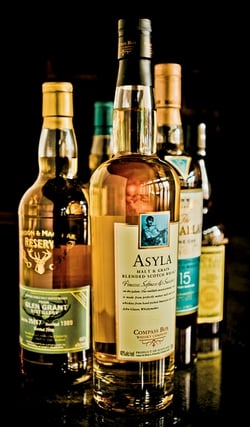
Thomas smiles. “You gotta understand Harvey. It’s not about money. I know people always say that, but in this case it’s true.”
Thomas describes Fry’s appearance as a cross between Santa Claus and Willie Nelson. With his long white beard and large eyes, Fry communicates something of the gravitas of a Talmudic scholar. His clothes—he favors a green bandana and secondhand jackets—suggest someone who has spent weeks on the street.
It’s not that Fry doesn’t have money; it’s that he doesn’t waste it on clothes. You get much the same impression from his brownstone, filled with paintings, books, and bottles.
Evidence of Fry’s mania for Scotch is everywhere. In the kitchen, a seven-tier shelving unit takes up the back wall. It’s not a pantry; it’s a library—a library of booze.
In his office are more bottles, including nearly three dozen unopened boxes—recent deliveries. A room off the office contains more unopened boxes and more bottles.
Fry says that, contrary to much of the writing done by so-called experts, there’s one key to great whisky.
“You can talk all you want about the water, but the most important thing is who controls the execution, and that’s the master distiller,” he says, by way of praising one of the greats in the industry, Jim McEwan, who oversees production at Port Charlotte and Bruichladdich. “He’s the executive chef, the sous chef, the line cook, and the waiter and busboy, too.”
The tour ends in a small top-floor room jammed nearly floor to ceiling with bottles. I had assumed that Fry’s collection would convince me of the narrowness of his obsession, but it has the opposite effect. It’s a literary truism that in fiction the universal comes from the particular, and it applies here, too.
Following Fry back downstairs, I catch sight of him as he turns a corner—the long white beard, the wild eyes—and it hits me: He is Prospero. Only with bottles instead of books.
Next: "I don't drink. I can't. My liver's shot."

Before I met Fry, collecting seemed to me to be an outlet for people who, lacking a passion for ideas, people, or art, express themselves through objects. I saw it mostly as a matter of acquisition. Fry made me see that his brand of it requires a mind that conceives of the world as something to be decoded and, ultimately, mastered.
In the world of single-malt Scotch, Fry is known not only as a man with encyclopedic knowledge and a superlative palate but also as someone inclined to do whatever it takes to acquire a bottle. Getting the goods requires navigating a sprawling network of wholesalers, private dealers, and distributors. He negotiates relentlessly, trying to drive prices down.
Fry spent a week chasing down two bottles of a new release, going through multiple sources and negotiating a price he was prepared, after considerable research, to pay.
We tend to think of an obsession as an expression of the irrational. But couldn’t collecting, at Fry’s level, also be seen as the opposite of irrational? Couldn’t it be a means of shrinking the world in order to make sense of it, gain mastery of it, possess it?
But why then was Fry choosing to part with his prized possessions? Having defined himself for the past 12 to 15 years as a collector of single-malt Scotch, why would he begin to divest himself of his bottles?
A Scotch tasting at Fry’s house: four bottles. He brings in one of his own concoctions, made, he estimates, from 70 to 80 different Scotches.
It’s fantastic. But as I take my first sip, I notice that Fry isn’t drinking.
He swirls, puts his nose deep into a snifter filled with a Bruichladdich, inhales, sips—then spits the contents into a glass.
“You’re not drinking?”
“I don’t drink. Not anymore. I can’t. My liver’s shot.”
Fry and I are in my car, en route from Mount Pleasant to Brentwood, for a sandwich at MGM Roast Beef. Telling me to ignore my GPS (“I’ll get us there—I’m a cabbie, remember?”), he directs me through side streets.
I ask him what it takes to be a good cab driver. His answer: A good cabbie must possess intimate knowledge of a city’s sociology, an understanding of the cultural moment, and an appreciation for playing angles. The explanation takes more than 30 minutes.
About his own life, Fry is less inclined to speak. “Haven’t we talked about this already?” he asks. Eventually, he delivers an abbreviated account of himself.
Son of a broker father he loves and a society mother he despises—her greatest wish is for her son to mind his manners—he acts out all his inner dramas in 1940s Corpus Christi. Drag racing, drinking too much, chasing girls. The bad-boy rich boy.
A friend tells him, “You keep this up, you’re not gonna live to see 20.”
He lives to see 20, comes east to study, enrolls at George Washington University, and takes a job working for the National Republican Congressional Committee on Capitol Hill. For a college student who loves to devour old dictionaries and prefers to work alone, no job could be better. Every day he peruses 50 newspapers from around the country and reports on what’s pertinent.
Even so, it’s the last time he’ll work for anyone else.
Next: Fry plunges in to bourbon, Scotch, and cognac
He ditches DC for New York and Greenwich Village. It’s the early 1960s. Jackson Pollock is dead, but the Abstract Expressionist movement is still the talk of the Village. Fry fills his canvases with paint, one after another. He makes enough to keep a roof over his head and to eat and drink—drink more than eat. Thus ends the short life of Abstract Expressionist Fry.
Rejecting the idea of becoming the academic or teacher his degree has prepared him for, he returns to DC and takes up cab driving. He likes the easy money—and the fact that so much of it goes directly into his pocket.
But Cabbie Fry is animated by something larger than money. A philosophy. As a libertarian, he sees driving a cab as affording him more freedom than any career he can fathom doing. He isn’t simply piloting a car; he’s expressing his individuality.
He’s also drinking. Heavily. A friend says, “You’re not gonna live to see 30.”
He lives to see 30, becomes Businessman Fry. He starts one of DC’s first successful courier companies, makes a pile of money, sells the business.
He becomes Gambler Fry. He joins forces with a friend, wagering on professional football for the next eight years. For the first six, they gamble widely, placing bets on six or so games every Sunday. In year seven, they try something different. In Vegas, you ride the hot hand. Fry and his partner try riding the hot team. It’s 1985. The Chicago Bears enjoy one of the most dominant seasons in NFL history. They go 15–1, covering the spread in all but one game. Near the end, Fry and his friend are placing up to $200,000 on the games. It’s a period of hard living, hard partying.
“You’re not gonna make it to 50 if you keep this up,” his doctor brother tells him. Fry is 47.
He’s sitting in Shea Stadium, watching the ’86 World Series, Red Sox versus Mets, when a friend saves his life. If you had to pay more for the stuff, he says, you wouldn’t drink it like water. You need to start sipping.
Because Fry does nothing halfway, he plunges into the world of bourbon and Scotch and cognac. More than learning what he likes and doesn’t, he learns the language of that world, its systems of codification. He creates another, more sustainable self: Collector Fry.
Next: The strange similarities between Bill Thomas and Harvey Fry
It was while driving his cab eight years ago that Fry met Bill Thomas. Ferrying his shaggy-haired passenger to Bourbon on Wisconsin Avenue, Fry discovered that the young man shared his interest in bourbon. He also owned the popular bar.
When the two met again years later, Thomas had no memory of that earlier drive. But Fry did. The cabbie remembered everything.
Thomas came to learn that the wizard-bearded cabbie was a force in the field. The mixologists knew and respected him, and all the good liquor stores, it seemed, had a Harvey Fry story.
A couple of years ago, about the time Thomas began thinking about Jack Rose, he joined a drinking group with Fry and Cofino. “I was a novice before then,” Thomas says. “Now I can identify distinct profiles of brands. I’ve learned the difference between a sherry cask and a bourbon cask. It’s been an education.”
Fry began selling off his stash of bourbon to Thomas and using the money to expand his collection of Scotch. Thomas wasn’t merely a buyer—Fry respected his desire to learn. Thomas didn’t blow money on parties or cars or clothes. He was a good businessman, always thinking ahead. Whatever money he made he pumped back into the operations. Fry saw him as a dreamer, but a dreamer with common sense and street smarts. He liked that.
Thomas was also a collector. Bourbon was his drink, and he was nearly as obsessive about it—he’d already amassed more than a thousand bottles—as Fry was about single-malt Scotch. Fry liked that, too.
Bill Thomas was also a collector. Bourbon was his drink, and he was nearly as obsessive as Fry. He'd amassed more than a thousand bottles.
Fry invites me to sit in one night with his Scotch-tasting group, which includes Thomas and Cofino and meets at Fry’s house.
For nearly three hours, we sample a dozen or so single-malt Scotches, a few of which will end up on the shelves at Jack Rose, and the men record their impressions in their notebooks. Fry’s is a worn copy of Michael Jackson’s Complete Guide to Single Malt Scotch, a bible to enthusiasts. The copy is held together by eight large rubber bands and pieces of tape.
Joking and joshing alternate with thoughtful appraisals of what Fry sometimes refers to as “the sauce,” and the dining room has the air of poker night with the boys, right down to the boxes of Ledo pizza.
Their appraisal of a Bruichladdich is typical.
Thomas: “The initial impact is very watery, then it kicks in.”
Cofino: “It’s nicely flowery.”
Fry: “This is finer and more complex than the one we just tasted. It’s like a beautiful woman—like an 8.5 that walks down the street, compared to a 4.7. The peat’s there, but it’s in the background. This is a Scotch you wanna spend time with.”
Fry once wrote on the Malt Advocate blog: “Especially as i grow older, i find that without the sharing/comparing social aspects of this thing, it’s a whole lot LESS FUN. tasting/drinking by yourself may have its charms, but the best way to nail down a huge part of what this stuff has to offer is to get together with a few practiced practitioners who are also under the spell . . . .”
Thomas leaves after the last of the glasses is drained, but Cofino and I are still nursing sips of a Port Charlotte, so Fry pulls out a translation of his favorite poem to read: André Breton’s surrealist masterpiece, “Go for Broke.”
Fry wrote poetry for many years, and his delivery reflects his love of the written word spoken aloud. He captures the wild, ragged intonations of Breton’s stanzas.
He’s out of breath by the time he reaches the final stanza:
He is called
He carries
The flamboyant name of Go-for-Broke
In life and death go running
Run the two rabbits together
Run your luck that is a volley of bells of celebration and alarm
Run the creatures of your dreams till they collapse spewing on their white collars
Run the ring without the finger
Run the head of the avalanche
Neither Cofino nor I say anything. Fry’s reading is an incantation—intimate, intense, vaguely unsettling. It lingers in silence.
Next: The J. C. Penny salesman's hustler son
I take the reading of the poem as a form of explanation for the wild, crazy life Fry has hinted at. It also helps me better understand the connection between Fry and Thomas. Like many self-made men, Thomas presents himself as someone who took the hard path and was rewarded for it. He regards himself less as a businessman than as a “hustler.”
Thomas grew up in Clinton, Maryland, absorbing the lessons of his father, a salesman who worked at J.C. Penney (“If he didn’t sell, he didn’t make any money”), started a gas station, then opened a video store in Forestville.
The father was savvy, but the son was savvier. The young Bill Thomas didn’t see why it was necessary to maintain a fixed location to sell videos. He began pitching his father’s VHS tapes outside shopping centers. He rented tents in parking lots. He opened temporary stores at malls. He sold on sidewalks. At Christmas he’d sleep in his car to sell to people who had gotten up early to shop before work.
One year, a HoneyBaked Ham franchise opened next door to the video store, and in the weeks leading up to Christmas, the line to get in was blocking the video business. His father complained. Thomas began selling tapes to customers waiting for their hams.
Thomas also created two sideline businesses of his own. The first was a T-shirt company he started in high school with a friend. The other was a ticket-scalping business.
When he started scalping, he hired four employees. By the third week, he had 11 more. They would camp out in front of RFK Stadium, buy up blocks of tickets, then sell them for a profit.
Thomas bought his first house at age 20.
Somehow, while running three businesses between his teens and mid-twenties, he collected more than 130 credits at Prince George’s Community College, GW, and the University of Maryland. He never finished, but he’s never regretted it. “All I ever wanted,” he says, “was to live in the city, make a million dollars, and have a great house. And I’ve done that.”
The house is near Dupont Circle. Thomas lives alone; the four floors are scarcely inhabited. The refrigerator contains nothing but a bottle of water. The table is a 100-year-old piece of white oak on two whiskey barrels. The most obvious evidence of a human presence is his whiskey collection.
“Other than drinking whiskey and sleeping,” Thomas says, “I don’t really spend any time there. I could empty it out in four hours.”
Thomas doesn’t trust comforts.
I ask whether he distrusts success.
“What is that? Money? I care about the people I’m around, and I care about doing something great and fun. Money to me is just a way to pour resources back into my business. An opportunity to do more, and better. I’m the same person I’ve always been. I’ve got a better palate and more money, but I’m basically the kid I was back when, selling tapes and T-shirts and tickets. I’m a hustler.”
“Is that part of the bond you and Harvey have?” I ask.
“Definitely. He tells me, ‘You’re a young me, and you need to watch your liver.’ ”
Hearing this reminds me of a moment toward the end of my lunch with Fry at MGM Roast Beef. I’d asked him whether he considered Jack Rose to be a kind of monument to his collection. He was chewing the roast-beef sandwich he had requested be cut into ten pieces, and his face reddened as he thundered, “I don’t give a shit about posterity! When I’m dead, I’m dead.”
People turned and stared.
Next: Standing in awe of what he'll one day inherit
“You read all this talk about how the planet will be uninhabitable in 120 years,” Fry said. “Why do I care?”
I asked whether any of his family would inherit any part of his collection.
The question occasioned a brief tangent about his son, a judge, who lives in Florida.
“And?”
“Him? He’s not gonna get a damn thing.”
Fry’s wife?
He’ll provide for her, he said, of course. But what the hell does the collection have to do with her? He has his money, she has hers. He has his things, and she has hers.
“Look, if I have a concern for some future generality, it’s that someone will inherit the collection who has the knowledge and the understanding of what this thing is and the passion to do right by it, and maybe that will be Jack Rose, but we’ll just have to see, okay?”
On the phone one night, Fry loses patience with my attempt to determine how many of his bottles will go into Jack Rose.
“Why are you so goddamn focused on numbers?” he screams. “All my life, it’s been this sort of shit! People relate everything to numbers. What difference does it make how many bottles?”
I’ve been thinking like a journalist when I ought to have been thinking like a poet.
Jack Rose is a new chapter in the life of Harvey Fry. A new venture, a new system to learn and master. Divesting himself of his most cherished possessions is the beginning of the end of something, but it’s also the beginning of something new.
As Fry began the transition from collector to curator, dispensing his knowledge to interested drinkers, Bill Thomas began his own transition. It was flattering that Fry had placed so much faith in him. But it was humbling, too, to realize that the whole thing might soon be Thomas’s to care for. He had just opened the greatest, most well-endowed bar the city had ever known, yet he still seemed in awe of what he stood to inherit.
“There’s a story with every bottle,” Thomas says. “I’m gonna get a plaque so people can understand just what this is, how special it is. To me, it’s like a living thing.”
This article appears in the June 2011 issue of The Washingtonian.

